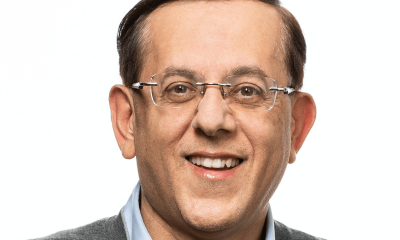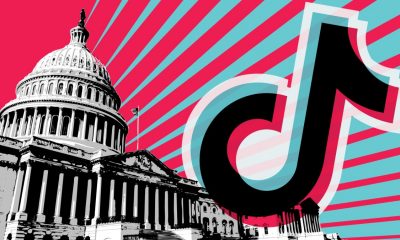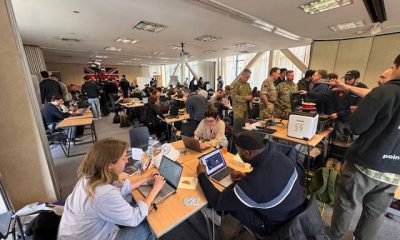Finance
10 things you need to know in markets September 3


An
investor looks back in front of computer screens showing stock
information at a brokerage house in Wuhan, Hubei province April
20, 2015.
REUTERS/Stringer
Good morning! Here’s what you need to know in markets on Monday.
1. A new poll has found a majority of decided voters in Scotland
and Northern Ireland would opt to break from the UK if it leaves
the EU, according to a shock new poll which reveals that Brexit
now risks the future of the union. 52% of all
voters in Northern Ireland and 52% of decided voters in Scotland
would opt for independence from the United Kingdom if Brexit goes
ahead, according to polling by Deltapoll for the Best for Britain
campaign group.
2. Asian stocks dipped on Monday on worries about further
escalation of the U.S-China trade war and unstable emerging
market currencies. “It looks almost certain that
Trump will impose 25 percent tariffs on $200 billion worth of
imports from China,” said Norihiro Fujito, chief investment
strategist at Mitsubishi UFJ Morgan Stanley Securities.
3. Brent crude oil prices dipped on Monday amid rising supply
from OPEC and the United States, although expectations of falling
Iranian output once U.S. sanctions bite from November provided
some support. Output from the producer cartel of the
Organization of the Petroleum Exporting Countries (OPEC) rose by
220,000 barrels per day (bpd) between July and August, to a
2018-high of 32.79 million bpd, a Reuters survey found.
4. The historic run-up in world shares will continue through
2019, but the outlook for almost half of the major bourses polled
by Reuters has slipped, with many now only expected to recoup
losses from this year’s sell-off. Following a strong
performance in 2017, world shares hit their latest run of new
highs this month on solid economic and corporate earnings growth.
5. U.S. automaker Ford plans to drop production of some of its
automobile models as part of a planned operational restructuring
announced earlier this year, sources told The
Times. The British newspaper reported that Ford
planned to end production of Mondeo, Galaxy and S-Max models and
focus on more lucrative sport utility
vehicles.
6. As Argentina drafts plans to cut its budget deficit to
convince nervous investors it can pay its debts, President
Mauricio Macri is under increasing pressure to reverse one of his
signature policies, cutting farm export taxes. “The
market will likely be expecting a 2019 budget that makes a
credible attempt to all but eliminate the primary deficit,” said
Jeffrey Lamoreaux, senior analyst at Fitch Solutions in New
York.
7. Italy’s populist government will make a “historic choice”
between what citizens need and what ratings agencies say should
be done, the deputy prime minister said on Sunday, responding to
Fitch’s cutting the outlook on Italian
debt. Fitch on Friday changed the outlook on
the world’s third-largest pile of state borrowing to “negative”
from “stable”, citing concerns about the government’s “new and
untested nature” and its promises to hike spending.
8. The founder and chief executive of Chinese e-commerce giant
JD.com Inc, Richard Liu, was arrested in the U.S. state of
Minnesota on a charge of criminal sexual conduct and later
released, a county sheriff’s department jail roster
showed. The charge against Liu, 45, was made
just before midnight local time on Friday, and he was released
just after 4 p.m. on Saturday, according to the Hennepin County
Sheriff website.
9. Saudi Arabia’s sovereign fund has appointed Andrew Liveris,
the former chairman and chief executive of Dow Chemical, as a
special adviser, it said on Sunday. Liveris
will work closely with the Public Investment Fund (PIF) on
matters of strategic importance, assist the fund in efforts to
boost the value of its portfolio, and ensure the contribution of
PIF companies to Saudi Arabia’s economic vision program 2030, the
fund said in a statement.
10. China’s Exim bank will lend Nigeria $328 million toward
improving the west African country’s telecoms infrastructure,
Nigeria’s presidency said on Saturday, at the start of a six-day
visit by President Muhammadu Buhari to the
country. Poor telecoms are a major challenge
for businesses operating in Nigeria, which is Africa’s largest
oil producer, most populous country and has one of the
continent’s largest economies.
-

 Entertainment7 days ago
Entertainment7 days agoSummer Movie Preview: From ‘Alien’ and ‘Furiosa’ to ‘Deadpool and Wolverine’
-

 Entertainment6 days ago
Entertainment6 days agoWhat’s on the far side of the moon? Not darkness.
-

 Business7 days ago
Business7 days agoThoma Bravo to take UK cybersecurity company Darktrace private in $5B deal
-

 Business6 days ago
Business6 days agoHow Rubrik’s IPO paid off big for Greylock VC Asheem Chandna
-

 Business6 days ago
Business6 days agoTikTok faces a ban in the US, Tesla profits drop and healthcare data leaks
-

 Business5 days ago
Business5 days agoLondon’s first defense tech hackathon brings Ukraine war closer to the city’s startups
-

 Business6 days ago
Business6 days agoPhoto-sharing community EyeEm will license users’ photos to train AI if they don’t delete them
-

 Entertainment7 days ago
Entertainment7 days ago‘Challengers’ review: You’re not ready for Zendaya’s horny love-triangle drama






















